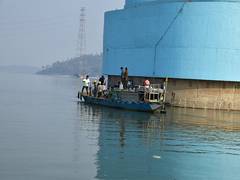Gujarat CM Bhupendra Patel’s 3-year tenure: A leap forward in tech, socio-economic growth
Gandhinagar (Gujarat) [India], September 12 (ANI): Chief Minister Bhupendra Patel’s leadership was marked by substantial progress in governance and development, with the state witnessing several policy initiatives and successful organisation of international events as CM Patel-led government completes 3 years in office on September 13.
Technological advancement and socio-economic development were among the key achievements of the Patel government that included the development of Gujarat into a growing semiconductor hub and leader in renewable energy.
During his tenure, the Patel government introduced 11 key policies, namely the Gujarat Aatmanirbhar Policy, Gujarat Biotechnology Policy, New Gujarat IT/ITes Policy, Gujarat Sports Policy, Drone Policy, Gujarat Semiconductor Policy, Gujarat Renewable Energy Policy, Cinematic Tourism Policy, Student Start-ups and Innovation Policy 2.0 (SSIP-2.0), Gujarat Procurement Policy, and Gujarat Green Hydrogen Policy 2024.
Under CM Patel’s leadership, Gujarat hosted significant international events. The state successfully organised the G20 meetings in 2023, which saw 17 sessions held across Gujarat. Additionally, the 10th edition of Vibrant Gujarat Global Summit 2024 was a testament to the state’s growing international influence.
His administration also focused on comprehensive development and welfare programmes. Key achievements included successfully meeting and exceeding the target for constructing Amrit Sarovars, with 2,649 completed against a target of 2,475.
Gujarat became the first state to draft a roadmap for ‘Developed Gujarat@2047,’ reflecting a commitment to future growth with a mantra of “Earning Well, Living Well,” and the state achieved the highest rank in the Sustainable Development Goals (SDG) India Index for health and well-being for the second consecutive year.
In terms of socio-economic development, the Patel government has initiated several key programmes to uplift the underprivileged and marginalised communities.
Major achievements were the construction of Shramik Baseras, providing temporary housing for 3 lakh construction workers, registration of over 1 crore 17 lakh unorganised Shramyogis on the e-Shram portal and issuance of smart cards, implementation of the Vanbandhu Kalyan Yojana 2.0 with an investment of Rs 1 lakh crore, launching the Shramik Annapurna Yojana, with 290 food distribution centers operational across 19 districts, serving 2 crore 68 lakh people, facilitating the construction of over 14 lakh houses under the Pradhan Mantri Awas Yojana, and ensuring food security for 72 lakh NFSA cardholder families through the Pradhan Mantri Garib Kalyan Anna Yojana.






